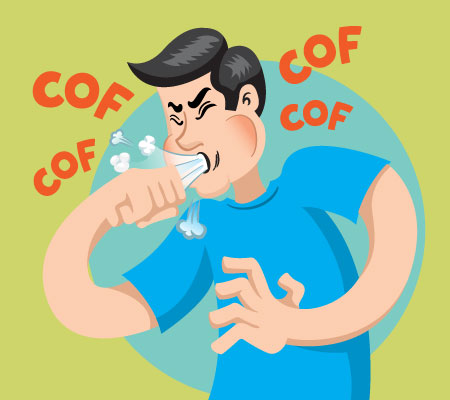
Cold symptoms that last a long time and get worse could be pneumonia, a lung infection that can cause serious complications.
When cold symptoms stick around and get worse, it may be hard to tell what’s causing them. It could be bronchitis, influenza or pneumonia. Getting the right diagnosis for worsening symptoms is important to avoid serious health complications.
Pneumonia is an infection of lung tissue involved in gas exchange. This blog post describes community-acquired pneumonia, which is contracted outside of hospitals and health care facilities.
“It’s uncommon compared to a cold, but it’s a serious infection. If you notice symptoms, you should see a doctor,” said Dr. Grace Devadas, a Marshfield Clinic internal medicine physician.
Here’s what you should know about pneumonia to avoid it, recognize it and treat it properly.
1. Bacteria, viruses and fungi cause pneumonia.
Bacteria are the most common cause of pneumonia in adults. Streptococcus pneumoniae bacteria cause most cases of bacterial pneumonia. It can develop on its own or after you’ve had a cold or the flu. Bacterial pneumonia is treated with antibiotics.
Viruses are another common cause of pneumonia. Viral pneumonia usually develops after a cold or the flu. Some cases clear up on their own, but some people need antiviral medication and hospitalization to treat and monitor their condition.
Fungi can cause pneumonia, but it’s less common. It usually occurs in people who have weakened immune systems.
2. It can start with a cold or influenza.
“A cold or flu can turn to pneumonia because the lungs are irritated and can’t fight off other germs,” Devadas said.
Your body clears mucus from your airway more slowly when you have influenza and for up to 12 weeks after. Risk for pneumonia increases when you can’t effectively self-clear fluid from your lungs.
3. Call your doctor immediately if you have symptoms.
Chest pain when you breathe or cough, difficulty breathing and phlegm that is yellow, green or brown are signs you may have pneumonia. Pneumonia shares some symptoms with influenza, including severe cough, fever, chills, shaking or trembling, body aches and fatigue.
Symptoms differ from a common cold, which involves a stuffy and runny nose, sneezing, sore throat and cough.
Call your doctor within 24 hours if you notice symptoms of pneumonia. A doctor can diagnose pneumonia by listening to your lungs and looking at a chest X-ray.
4. It can cause serious complications.
Pneumonia can cause respiratory failure, sepsis (an infection that reaches the bloodstream), empyema (a condition in which pus collects between the lungs and chest wall) and death in the most serious cases.
People who have asthma, chronic obstructive pulmonary disease (COPD), diabetes, people who smoke and older adults are more likely to experience complications.
You may be admitted to the hospital if you’re at high risk for complications based on your age, pre-existing medical conditions, vital signs and symptoms like confusion.
5. There’s a vaccine for it.
Everyone age 65 or older should get the pneumococcal vaccine. People who have COPD, diabetes, congestive heart failure and people who smoke should get the vaccine before age 65 because they are at higher risk for infection. A booster vaccine, Prevnar 13, is given one year later.
Besides getting vaccinated good hygiene can prevent the spread of pneumonia.
“Practice good hand hygiene and wear a mask if you’re sick,” Devadas said.
Related Shine365 posts
4 things to know about the pneumococcal vaccine
5 things to know about bronchitis
The flu shot: Get it, got it, done

